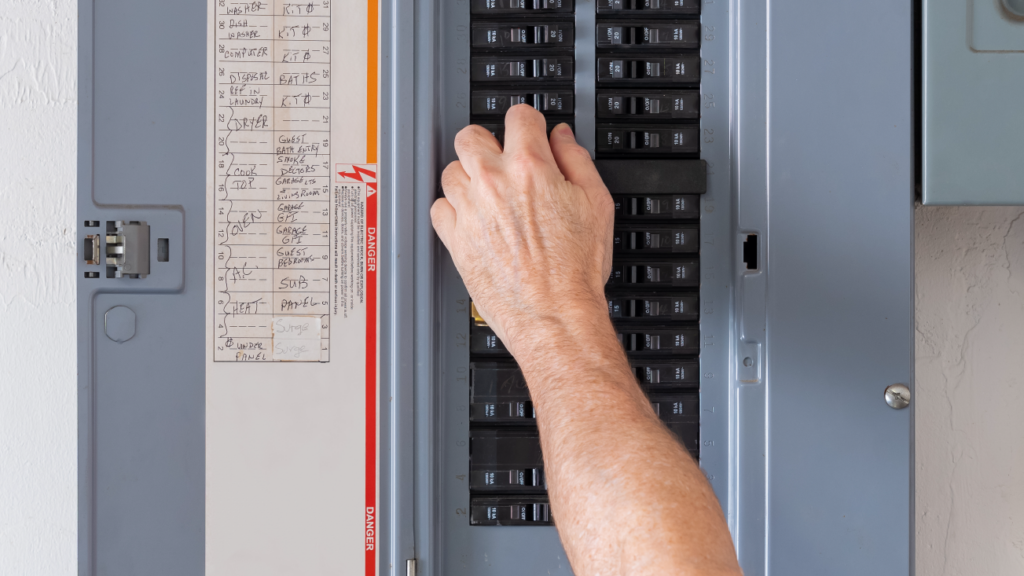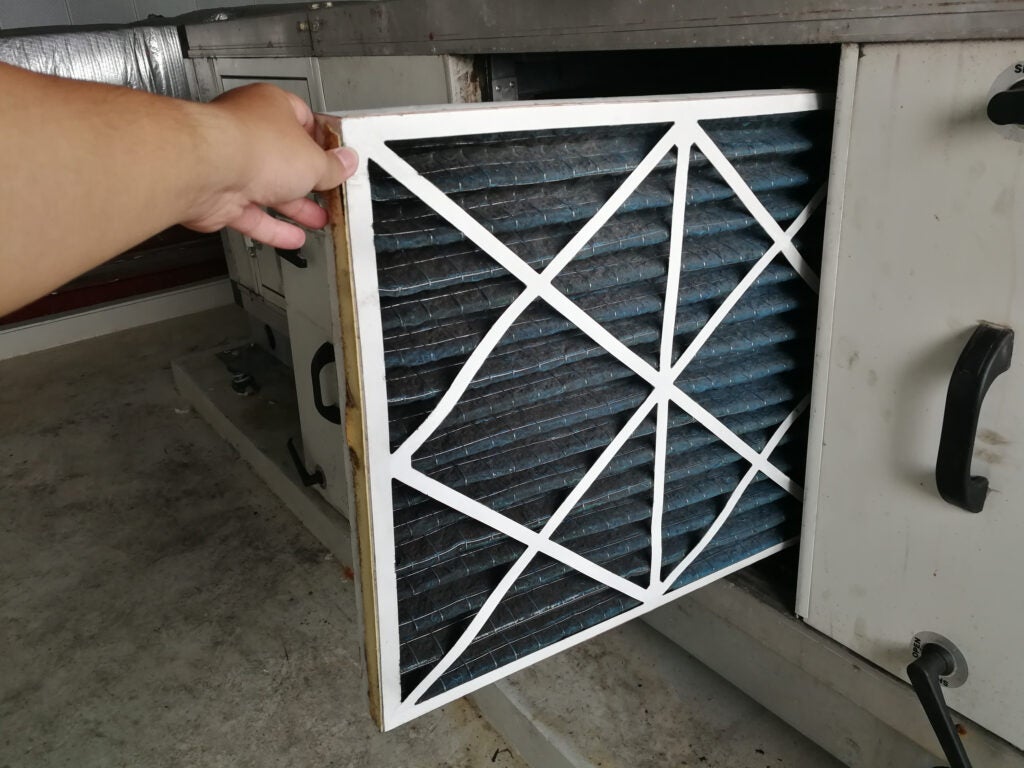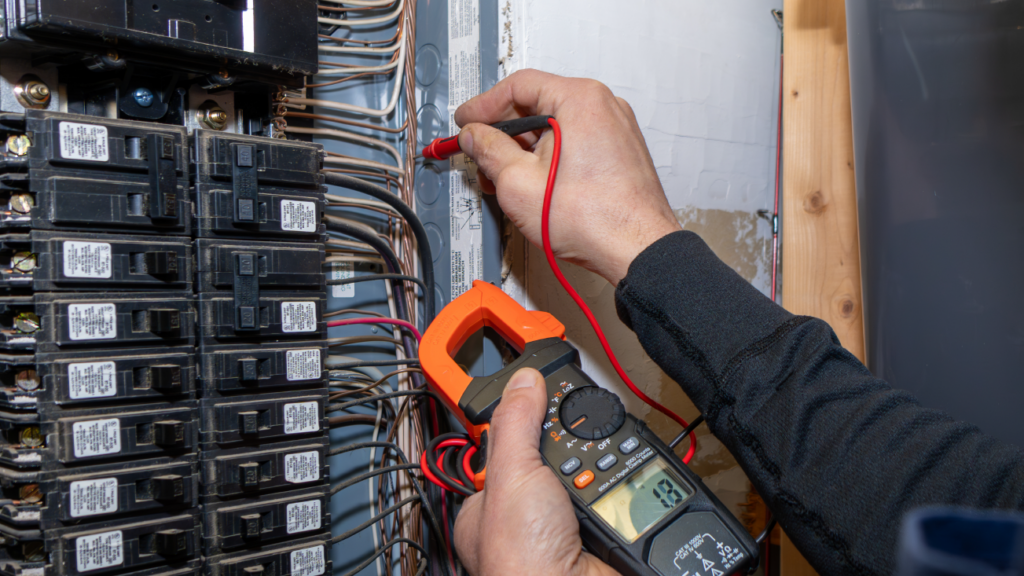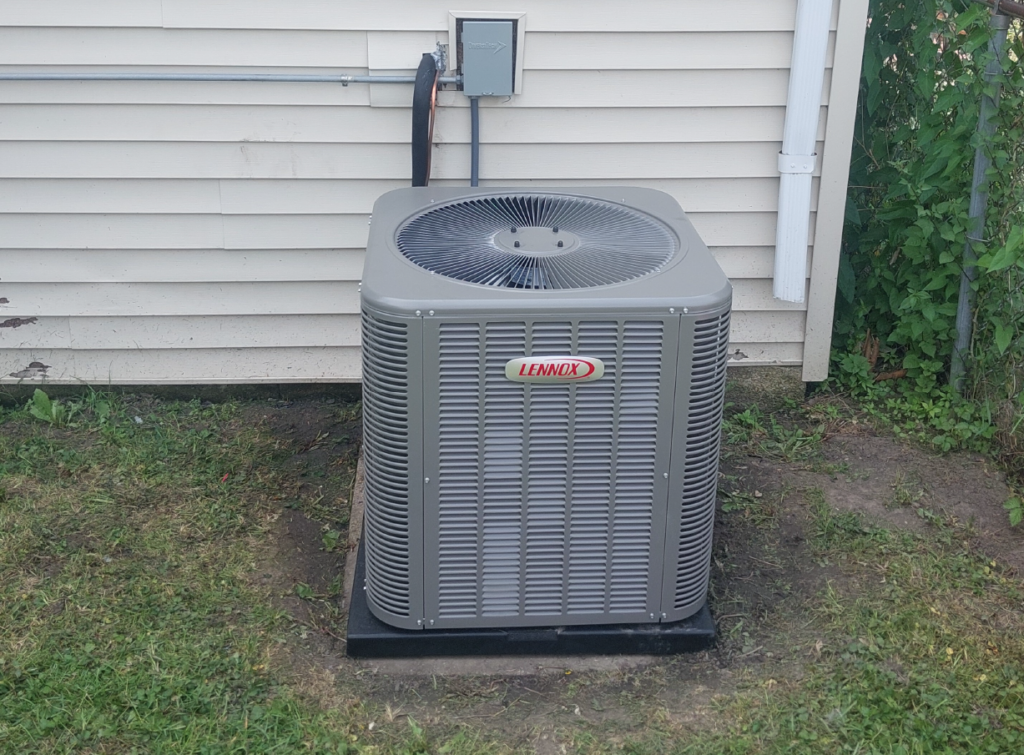CALL YOUR TRUSTED LOCAL EXPERTSSM
Air Conditioning Breaker Keeps Tripping? Common Causes and Fixes
By Dave Musial: CEO of Four Seasons Heating, Air Conditioning, Plumbing, Electric.
- July 18, 2025
If your air conditioning breaker keeps tripping, you’re probably frustrated and maybe a little concerned. When your AC trips the breaker, it’s doing so for a reason: to protect your system and your home from damage due to overheating or electrical overload.
Below, we break down the most common reasons your circuit breaker keeps tripping, how to prevent it, and when it’s time to call in a professional for help.

What Is an Air Conditioner Circuit Breaker?
An air conditioner circuit breaker is a safety device that controls and protects the electrical circuit powering your AC system. It’s located in your main electrical panel usually found in a basement, utility closet, garage, or on an exterior wall. This breaker monitors the flow of electricity to your HVAC system and shuts it off automatically if the electrical current exceeds safe levels.
Circuit breakers come in different amperage ratings, commonly between 15 to 60 amps for residential HVAC systems. The size you need depends on your AC unit’s electrical load, which varies by model and cooling capacity. Choosing the wrong size breaker, especially one that’s too small, can lead to repeated tripping even if your system is functioning correctly.
A tripped breaker means it has detected an electrical fault or overload. It “flips” off to cut the power, helping prevent serious risks like electrical fires, overheating, or equipment damage. So, if this keeps happening, don’t ignore it there’s likely an underlying issue that needs to be addressed.
Why Does the Air Conditioner Breaker Keep Tripping?
Here are the most common reasons your air conditioner trips the breaker, why they happen, and tips to prevent issues.
Dirty Air Filters
Your air filter plays a major role in how efficiently your AC runs. Over time, filters become clogged with dust, debris, and pet hair, restricting airflow. When this happens, your system must work harder to pull air through, causing the blower motor and other components to overheat. This extra strain on the system can trip the breaker as a safety precaution.
Tip: Replace your air filters every 1-3 months to prevent unnecessary stress on your system.

Compressor or Capacitor Failure
The compressor is the heart of your air conditioning system, responsible for circulating refrigerant and maintaining cooling performance. It uses a significant amount of power to operate any strain, or malfunction can cause serious electrical problems. If the compressor is damaged or the capacitor that helps it start is weak, it may draw too much current when cycling on. This electrical overload can trip the breaker repeatedly.
You might notice the system making a clicking sound without actually starting up, or it may run briefly and then shut off again. These are clear warning signs that the compressor or capacitor could be failing and should be inspected by a professional.
Tip: Schedule an AC tune-up to inspect and diagnose issues early before they turn into costly repairs.
Low Refrigerant Levels
Refrigerant is what your AC uses to cool air. When levels are low due to a leak or improper charge, the compressor has to run longer cycles and work harder, often drawing more current than it should—resulting in a tripped breaker.
Electrical Problems or Loose Wiring
Sometimes, the issue isn’t with your AC unit itself but with the wiring or electrical panel. Loose connections, corroded wires, or an undersized breaker that can’t support your AC’s energy demands can create unsafe conditions that trigger frequent trips. These are serious risks that should not be handled without a licensed professional. Always contact a licensed Emergency Electrician if you suspect faulty wiring or electrical failure.

Dirty Condenser Coils
Your outdoor condenser coils are responsible for releasing heat collected from inside your home. When they’re covered in dirt, dust, or leaves, the system can’t cool efficiently. This forces the AC to run longer cycles, which increases the risk of overheating and trips the breaker.
Tip: Lightly rinse coils with a hose (with the power off), and ensure there are no debris, bushes, or plants within two feet of your outdoor condenser to allow for proper airflow.

How to Prevent Breaker Trips
Preventing your HVAC circuit breaker from tripping starts with regular maintenance and early intervention. Here are some practical steps:
- Schedule annual AC tune-ups with a professional technician.
- Change air filters regularly to promote airflow and efficiency.
- Keep the outdoor condenser unit clear of leaves, grass, and debris.
- Pay attention to signs like weak airflow, frequent cycling, or burning smells.
- Don’t attempt DIY electrical fixes—always call a certified electrician.
When to Call the Experts
If your air conditioner trips the breaker more than once, it’s time to stop resetting and start diagnosing. Recurring breaker trips can lead to permanent equipment damage—or worse, an electrical hazard.
At Four Seasons, our team is trained to handle both AC repair and emergency electrician calls. We’ll find the root cause, recommend the safest fix, and help restore your home’s comfort fast.
Need help now? Contact Four Seasons for same-day service and upfront pricing. We’re here 24/7 to make sure your home stays cool, safe, and powered when you need it most.


